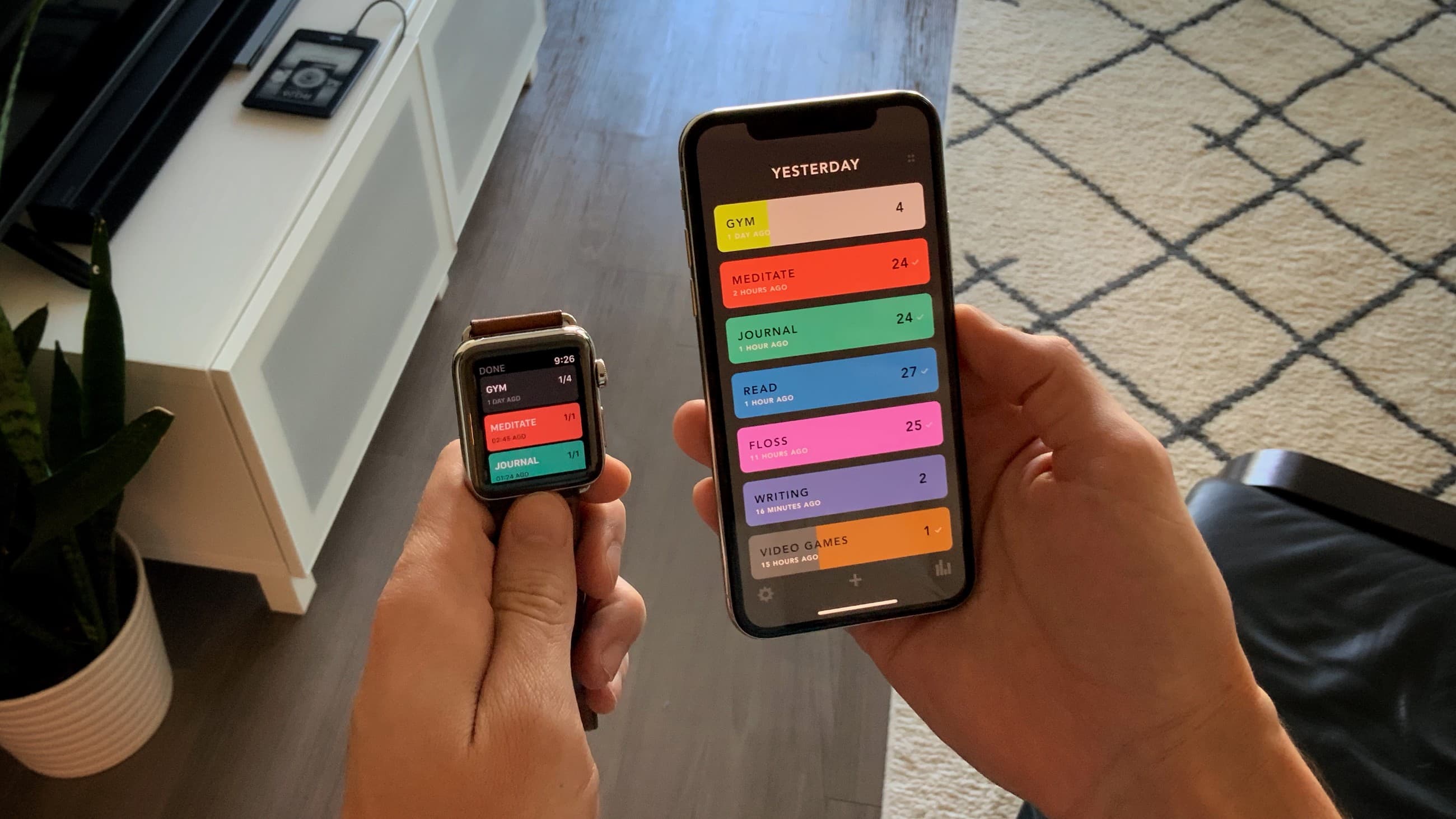How to Make New Habits Stick When Motivation Runs Out
The 6 best tips from Atomic Habits on building habits that last

Has this ever happened to you? You’re completely motivated to start some new habits, it started off well because you’re fired up, but your fire inevitably died out after just a short time?
It’s happened to me plenty of times. I’d start logging my habits everyday, which turned into every 3 days, which turned into once a week and so on until I completely stopped.
But after reading Atomic Habits (AH), I realized why I couldn’t keep up my new habits and how I can make new habits actually last.
Since then, without any signs of fatigue so far, I’ve been able to keep up several new habits — meditation, journaling, reading, working out, and flossing just to name a few.
Here’s six tips that helped me the most:
1. Ask Yourself, “Who Do I Want to Be?” and Write It Down
For each habit (or goal) you want to start doing, write down why you want to do it and how it helps you get closer to the person you want to be. Who you are is shaped by your habits and your behavior (not your thoughts).
The ultimate form of intrinsic motivation is when a habit becomes part of your identity. You might start a habit because of motivation, but the only reason you’ll stick with one is that it becomes part of your identity. True behavior change is identity change.
James Clear, Atomic Habits
For example, I want to journal every morning because I want to be grateful for who I am and what I have, and I want to live more purposefully. This helps me become a less envious and more happy person.
Writing down the “why” develops long-term motivation by making your habits a part of your identity, which is much stronger than a burst of motivation that dies out quickly. Now if you were to skip doing your habits, you will be going against who you are.
Remember that our own worth is measured by what we devote our energy to.
Marcus Aurelius, Meditations 7.3
2. Reframe From “I Have To” to “I Get To”
After your initial burst of motivation runs dry, habits quickly begin to feel like something “you have to do.” I couldn’t tell you the amount of times I’ve said aloud, “Shit, I can’t go to bed yet because I have to do x.”
Instead, think of each of your habits as an opportunity to make a step toward your desired identity. Continuing with journaling, I now tell myself “I get to journal today and it’s going to help me be more a grateful and happy person tomorrow.” At first, you will feel like you’re only trying to trick yourself. The concept is easy to understand, but it takes a while to naturally internalize it and that is when this mindset becomes a powerful motivator.
Reframing your habits to highlight their benefits rather than their drawbacks is a fast and lightweight way to reprogram your mind to make a habit more attractive.
James Clear, Atomic Habits
3. Set Up Your Environment for Success
Every night I set up my environment for a successful morning routine. That means I pre grind my coffee beans and get everything out to make a pour over, make sure my AirPods are charged for meditation, have my journal on my desk for morning journaling, and I have my light on my desk set to turn on automatically at 5:45 AM. This helps remove as much friction as possible between me and my morning routine.
My coworker Emil also read AH and says this tip has been one of the most helpful for him to surf more often. He’ll get his board, wetsuit, and anything else he needs out the night before to make it as easy as possible to just go.
4. Focus on Repetition, Not Perfection
It’s more important to get it done than to do it perfectly. If you’re low on energy, you can do a quick workout, you can do a shorter meditation, or you can read or write half as much as you normally do. It’s not the best path to do this all the time, but it can be important on days when you’re not feeling well, when you’re tired, when something came up and your short on time, etc.
This will help keep the chain alive — the chain (or streak) is the number of days or weeks in a row you’ve completed your habit. Not wanting to break the chain can be a motivator itself so making sure it continues, even if you’re not doing your best, can help you get through that low moment and still continue off strong tomorrow.
If you want to master a habit, the key is to start with repetition, not perfection. You don’t need to map out every feature of the new habit. You just need to practice it.
James Clear, Atomic Habits
5. Use a Habit Tracker
That’s why tracking your habits is so important — you can see how many times in a given week, month, year etc you’ve completed your habit, and how many days (or weeks) in a row you’ve done it.
Habit trackers give you a visual representation of your progress, can motivate you by calculating and showing your chains, and remind you to complete or log your habits if you’r using an app.
Habit trackers can be made with pen and paper, in a spreadsheet, or in an app. After trying all three of these, I found the habit app Done to be the habit tracking system I was able to stick to. Here’s my review of the app:
6. Reward Yourself
In order to help me get through my morning routine, I withhold myself from checking email, Reddit, Twitter, LinkedIn, or anything else on my phone until after my morning routine is completed. This is like a reward to myself for accomplishing the routine.
For larger habits or goals, like publishing an article once per week, I’ll allow myself to play video games on the weekend. The only way rewards work is you can’t give yourself the reward unless you accomplish the action it’s rewarding. Now there’s an element of risk to your habits if you don’t do them.
With these six tips, I have been able to continue my habits better than ever in my life. They are designed to help motivate you to do them and to avoid not doing them.
What has helped you make your habits stick?
You might also enjoy
-

How to Break Bad Habits for Good
The best tips from Atomic Habits on breaking your worse habits
-

Gymaholic App Review: The Best Gym App for Workout Tracking
No other app comes even close.
-

“Done” App Review: My Favorite Habit Tracker
And one you’ll actually stick to.
Never Miss an Article
Get notified by email when I publish a new article.
